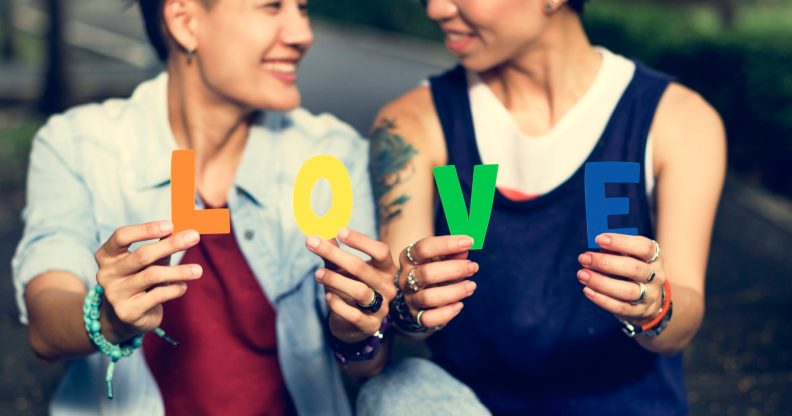Dictionary.com adds raft of LGBT+ words – including ‘Pride’ and ‘asexual’ – to ‘eliminate heterosexual bias in language’

Pride with a capital P now has its own entry. (Pexels)
Dictionary.com has released its “biggest ever update”, revising definitions and adding 650 new words relating to race, mental health, climate and the LGBT+ community.
The dictionary has revised the definitions of many LGBT+ words to put “people first”, including replacing the word “homosexual” with the words “gay, gay man, or gay woman”.
The site explained: “For example, we now define gayness as ‘gay or lesbian sexual orientation or behavior’ compared to the outmoded gloss of ‘homosexuality’. These changes alone affect over 50 entries.
“The previously used terms, homosexual and homosexuality, originated as clinical language, and dictionaries have historically perceived such language as scientific and unbiased.
“But homosexual and homosexuality are now associated with pathology, mental illness, and criminality, and so imply that being gay – a normal way of being – is sick, diseased, or wrong.”
The online dictionary has also given Pride – with a capital P – its own entry “to better document the specific, widespread use of the term”.
Dictionary.com added that the revisions will “help eliminate heterosexual bias in language, they also help better convey the diversity and richness of… human sexual experience and identity”.
Other new LGBT+ entries on Dictionary.com include the words “ace, ambisextrous, asexual, biromantic, deadname, gender-inclusive, gender diversity, and trans+”.
How big is BIG? We've updated over 15,000 entries on topics ranging from race and sexual orientation to climate and internet culture.https://t.co/kNdHhsLYrn
— Dictionary.com (@Dictionarycom) September 1, 2020
Another major update to the dictionary was the capitalisation of the word Black when used in reference to people.
“Capitalising Black confers the due dignity to the shared identity, culture, and history of Black people,” the site said.
“Dictionaries are not merely a linguistic exercise or academic enterprise.
“What are the effects of Black, referring to human beings, being grouped together with black, which can mean, among other things, ‘wicked’?
“The effects are social. They are psychological. They are personal. How words are entered into the dictionary – especially words concerning our personal identities – have real effects on real people in the real world.”
Dictionary.com added: “Change is constant, a principle that’s true in language as in life.
“No matter what is happening in the world, we’re committed to documenting and describing – and helping you stay informed on and, yes, sometimes entertained by – the English language as it evolves.”

